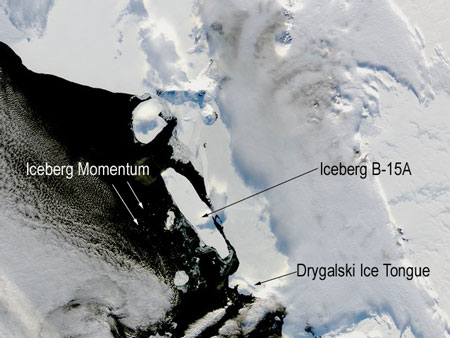Problems at the Nature Conservancy
I tend to divide up environmental regulations into two buckets:
- Regulations aimed at curbing emissions that spill out of one person's property (e.g by air or water) to others
- Regulations mainly aimed at land use restrictions that affect how someone may use their own land
The first type of law is essential to rational functioning of strong property rights in the modern world. Otherwise, we would all be suing each other over molecules of pollution that cross our property lines.
The second category, including wetlands and open space and habitat protection, are a threat to property rights (something one could infer just from the fact that many anti-capitalist anti-technology leftists have jumped on the environmental bandwagon, mainly focusing on this second category of limitations).
Here is one of those situations that make me a true minority in this country: I greatly value wide-open undeveloped spaces and ranges for wild animals, but I don't expect the government to provide them for me nor do I ask other citizens to provide them to me against their will. Unfortunately, most of the other people in this country who value these things do in fact accept, and even demand, that government provide them. Every day, landholders are told by various government bodies that they cannot do what they like with their land, because other people who do not own the land like the land the way it is. These landholders are effectively expropriated of their land, in these cases without even the payment the New London Kelo victims received.
This is why I have always supported the private land trust movement, of which the Nature Conservancy is the most well-known example. These land trusts use private donations to buy out property owners and set aside property for various conservation purposes. This way, the people who value the conservation of the land pay the price for it, not the person who happens to be owning the targeted land.
I was sad to see, therefore, the Nature Conservancy revealed in Senate hearings as having a number of ethical lapses. , was all over this story. They describe the problems found as follows:
*A pattern of dealings with insiders that gave preferential treatment on land deals.
*A pattern of dealings with the companies of board members
*Selling emissions credits, including a $10 million deal with General
Motors while GM's chairman John Smith served on TNC's board.*Selling emissions credits that it may or may not have even owned,
essentially furthering its own environmental goals (buying land) at the
expense of another environmental goal (reducing greenhouse gases)*Allowing oil and gas drilling on one of three known habitats of the
Attwater Prairie chicken, bumbling its way through the deal so that it
ended up in court, accused of cheating one of its partners, all while
pocketing over $8 million in royalties.The report paints a picture
of an organization that had gotten so big, and so successful, that it
lost sight of why it was formed in the first place.
There is a lot of discussion about what reforms will help prevent this problem, and a lot of discussion about eliminating the tax deduction for conservation easements:
It has become clear that some people have been abusing the law that
allows tax deductions for conservation easements. The easement
deduction allows me to sell the development rights to my property to a
land trust. I keep the property the way it is, and everyone who buys it
from me agrees to keep it that way too. If it's wilderness, it stays
wilderness. If it's a ranch, it stays a ranch. In areas with lots of
development, that can be worth a ton of money. The big question, how
much? It's a subjective appraisal, and if both parties want to unfairly
jack up the value, the hearings have shown the IRS doesn't have the
manpower to catch it. And it's led to a cottage industry in easement
tax shelters, including millions of exemptions for golf courses,
driving ranges and backyards. Phony trusts were set up not to protect
land, but to act as tax shelters for the wealthy. As the facts come
out, it's outraging critics, and depressing supporters.
In these deals, one party keeps the land while another party. like TNC, buys the "development rights" and pays the legal bills over time to defend these rights. Personally, I have not been a big fan of conservation easements. "Forever" is a very long time, and there are always going to be incentives to cheat -- if not in this generation, then in the next. Also, such "conditional" property makes me nervous, somehow splitting property rights into two pieces, like a treasury strip. I can't say I can make a firm philosophic argument against it, but it makes me uneasy.
I would much prefer land trusts like TNC to forget about being enablers for conservation easements and get back to their original mission - buying land outright for conservation purposes. By buying it outright, you get away from all the problems of policing private land use of the easements an organization has taken on.
I have decided to continue to donate to the Nature Conservancy. They do a lot of cool stuff, and philosophically I much rather spend my money to have property purchased for conservation rather than to lobby Congress to force someone to conserve at the point of a gun. I just hope TNC can get its act together so it can continue to provide a viable private alternative to government coercion.
